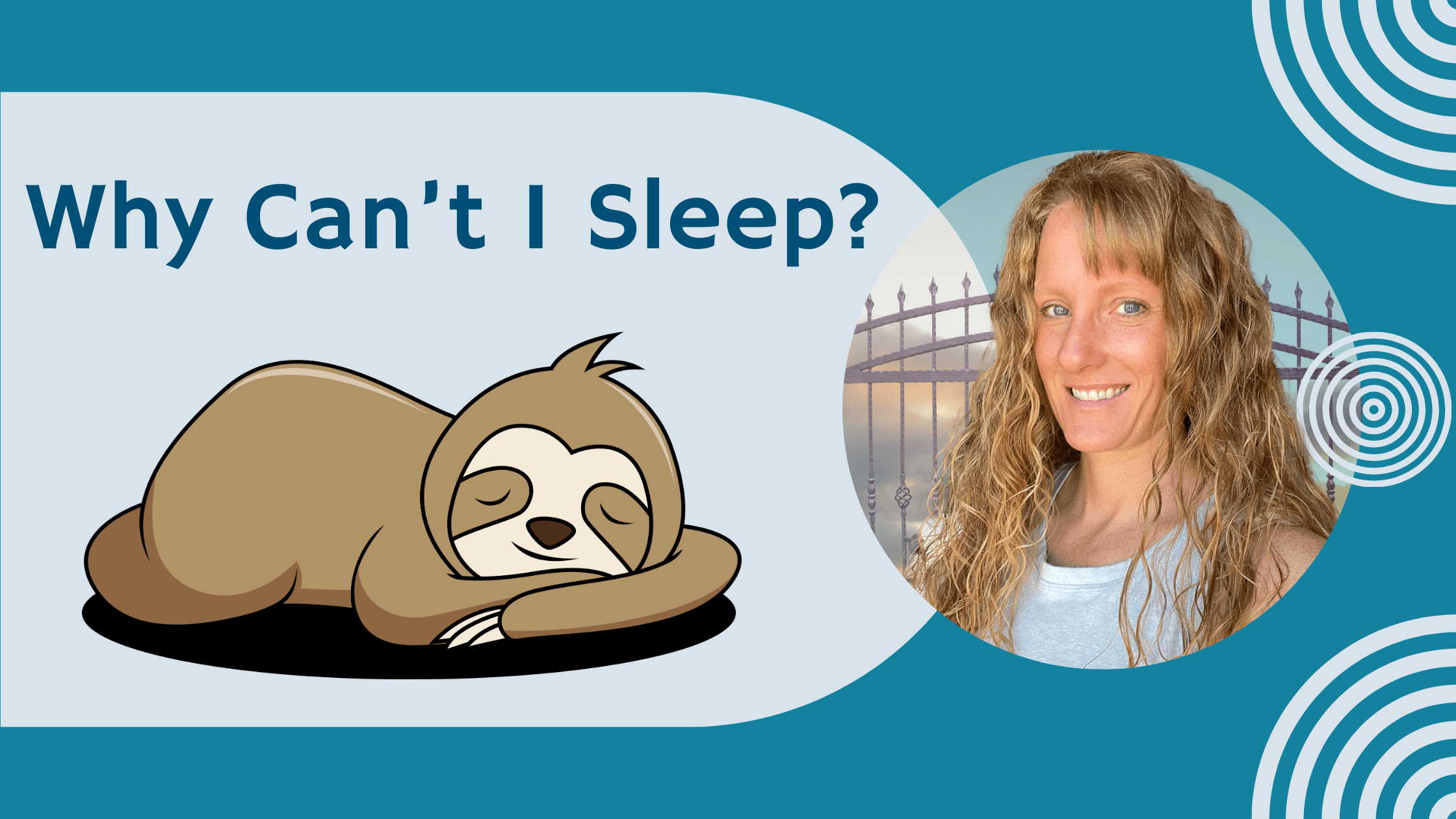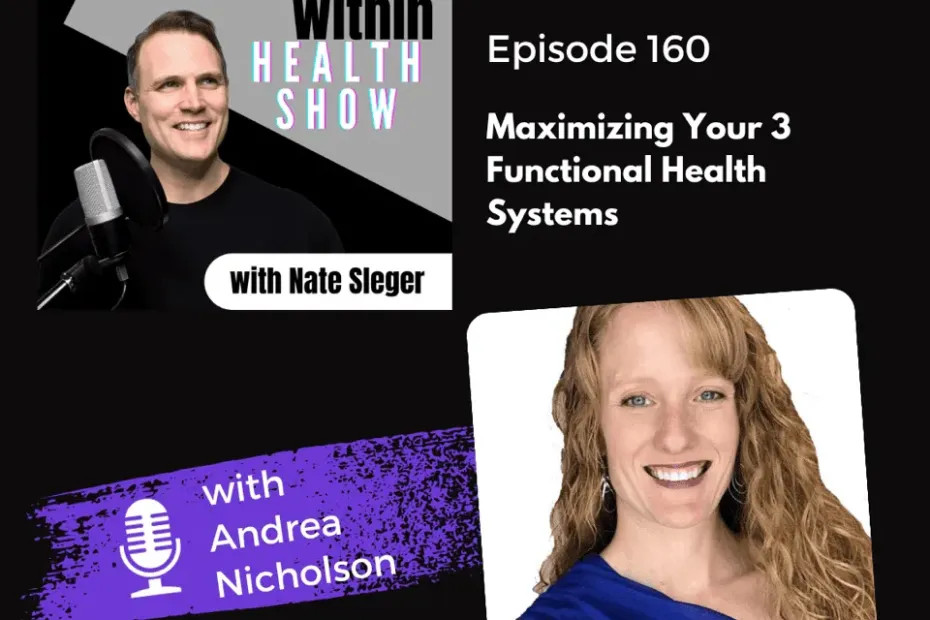
PILLARS OF SLEEP
Lack of quality sleep is a major driver of numerous disease dynamics.
TRANSCRIPT
We have talked before on this podcast about the incredible importance of sleep. Yet so many people struggle to get adequate amounts of quality sleep. 43% of adults report that stress has caused them to lose sleep in the last month, more than one third of adults use medication or other aids to help with sleep, and the productivity losses of fatigued workers adds up to about $136 billion? Today, we are going to break down 4 pillars to getting improved sleep
- Circadian Rhythm
- Glycemic Regulation
- Stress
- Sleep Hygiene
CIRCADIAN RHYTHM
The circadian rhythm is the daily cycle that regulates everything from our body temperature to hormone levels. It is primarily controlled by a portion of the brain called the suprachiasmatic nucleus (SCN) in the hypothalamus. The SCN is a tiny region of nerve cells that senses light information from the retina to synchronize internal clocks with the outside world. This helps us sleep when it’s dark and wake up when it’s light. When circadian rhythms are disrupted, it can have serious effects on our health. Shift workers and jet lag are two common reasons why the circadian rhythm gets disrupted, though there are many other factors such as artificial light, too much blue light, lifestyle habits such as going to bed too late, having random sleep and wake times without a routine, and more.
BLOOD SUGAR IMBALANCES
Blood sugar fluctuations can significantly impact falling asleep and staying asleep throughout the night. Blood sugar crashes can lead to waking up at night causing the body to release stress hormones, like cortisol, to pump out more sugar into the blood from the liver. When cortisol is elevated, it becomes a challenge to fall asleep or get back to sleep, as it is a hormone that boosts alertness and blocks the synthesis and release of melatonin, which is a calming hormone that should be highest at night. Elevated blood sugars at night can keep the body temperature higher which can also interfere with sleep. Elevated blood sugars are often associated with a large and/or late meal, both of which can also increase body temperature and prevent the full relaxation needed for quality sleep. These issues feed on each other - when you don’t sleep well, you have more cravings, lower inhibitions around food choices, and less insulin sensitivity the following day. And when you eat and live in a way to drive elevations or swings in blood sugar, you disrupt your sleep rhythms. It can be a viscous cycle to get out of.
STRESS
Stress is all around us and is impossible to fully remove from modern life. Unfortunately, stress can have a disproportionate effect on sleep. This is evident when you’re lying in bed obsessively thinking about an issue, running through your to-do list, or still trying to solve problems in your mind. This type of emotional and psychological stress has significant hormone and neurotransmitter impacts. As we’ve already discussed, elevated cortisol not only impacts blood sugar regulation, but it can also interfere with melatonin secretion. Stress results in the activation of the HPA resulting in not only the release of cortisol, but also noradrenaline and adrenaline, all of which are excitatory neurotransmitters, important during the waking hours (at appropriate levels), but very detrimental to being able to fall and stay asleep.
But stress doesn’t just come in the form of worry, rumination, and the never ending to-do list. It also comes in the form of chemical toxicity, underlying infection, over exercising, lack of exercise, poor sleep quality, nutrient deficiencies, too much caffeine, alcohol or other substance use, injuries, pain…anything that puts an extra strain on the body and prevents it from fully relaxing. When your body and brain don’t sense safety and security, you won’t be able to sleep well.
SLEEP HYGIENE
A lot of sleep disturbances are really attributed to our habits and routines. We stay up too late, watching TV, playing games or looking at device screens. This not only stimulates the brain by whatever it is we’re watching or looking at (especially the news, suspenseful shows, or violence), but also pummels the brain and the SCN with a lot of blue light that is more similar to early morning daylight. We use LED lightbulbs throughout our homes that are far more blue light than natural, we look at phones, computers, televisions and tablets most of the day and into the night, we don’t get adequate amounts of real sunlight into our eyes early in the morning or even at sunset, and we don’t prioritize calming activities. Even making a few small tweaks to your habits can make a major difference in your sleep quality. Here are a few things that can help:
- Turn off all screens 30-60 min prior to bed
- Create a solid routine - keeping the same bedtime and wake-up time all 7 days of the week.
- Avoid caffeine, alcohol and other mood altering substances for 4-6 hours prior to bed
- Have a pre-sleep routine – Try out some relaxing activities like reading (a physical book), meditation, stretching or peaceful music. Breathing properly and intentionally is a great habit to form.
- Avoid late night exercise, especially cardio. You may even need to move your exercise to the morning or before midday.
- Keep your bedroom cool, dark, and quiet. If you have a lot of ambient or random noises, you may need white, pink or gray noise to block out extraneous sounds. Invest in a comfortable bed, cool bedding, dark shades or an eye mask, and anything else you need to stay cool, comfortable and asleep.
- Address any signs of sleep apnea or other sleep disorders with a sleep specialist. These are serious issues that contribute to disease dynamics far beyond simply being tired.
SUPPLEMENT RECOMMENDATIONS
When necessary, there are some supplements that can be helpful. Please DON’T take them all! You also want good quality products that you can trust. I get all of mine here. I'd be happy to make brand recommendations as well.
- Melatonin for circadian rhythm. If you struggle with staying asleep, you might want an extended release formula.
- Phosphatidylserine for calming the brain.
- Glycine and taurine for circadian rhythm and calming the brain.
- Lemon balm for occasional stress.
- Chamomile (tea or supplement) for occasional stress.
- L-Theanine for occasional stress.
- Ashwagandha for occasional stress.
- Berberine for blood sugar management (best with a quality low carb diet).
- Fiber for blood sugar management and elimination of toxins.
- Alpha Lipoid Acid for blood sugar management.
- Magnesium taurate, malate or threonate for calming the brain.
- Magnesium glycinate for relaxing the muscles and overall magnesium status.
CONCLUSION
There are a lot of different factors that contribute to poor sleep and the remedy needs to be paired with the proper cause. I always recommend starting with nutrition and lifestyle factors as those will carry with you over your lifetime. Supplements can be helpful for rapid relief, but generally will only work in combination with the nutrition and lifestyle factors. If you’d like to take a deep dive into your metabolic health and specifically how to improve your sleep, let’s chat. Schedule a free consultation with me.





















0 Comments